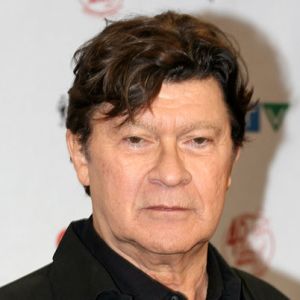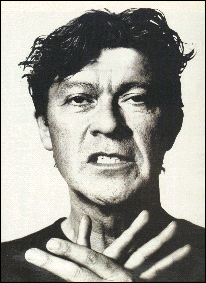Where Robbie Robertson Learned To Play At The Feet Of His Mohawk Cousin
NICK KREWEN
Hamilton Spectator
October 6, 1994
TORONTO: As a kid growing up in Toronto, Jamie Robbie Robertson had little interest and awareness in music.
That all changed at the age of 11, when Robertson, who would later co-found The Band, started spending his summer vacations visiting relatives at the Six Nations Reserve just outside Brantford, Ontario. He sent there with his mother Rosemary, a Mohawk Indian, to visit relatives.
During his adolescent years, the annual summer sojourn included guitar lessons from cousin Herb Myke, who now lives in Hamilton.
“Herb was the most accomplished guitar player around at the time,” recalled Robertson last week, reclining on a couch in his Toronto hotel suite. “It was the first time I’d seen anyone play up close. I’d be hearing these chords, watching his fingers on the strings, hearing him breathe as he sang, and I thought, ‘I’ve got to know what he was doing.’
“He and his brother Freddy showed me some stuff, and their Dad Waddy — he was also very musical. It seemed like everybody could sing or play something. It was just part of the lifestyle.”
Herb Myke, 64, recalls Robertson as a keen observer.
“He was a very quiet kid who noticed a lot.,” said Myke in a seperate phone interview. “He used to sit right in front of my knees and watch me. I’d show him something on guitar and he’d try it out.”
Myke is good-naturedly modest about his guitar prowess.
“To be the best wasn’t difficult, because there weren’t too many guitarists around at the time,” he says. “We had a big family and we played a lot because there was no television, and we didn’t have a radio.”
Robertson, who at 51 is still trim with a full head of thick, black hair, says he appreciated the differences between kids in the city and his cousins on the reserve.
“They had a special relationship with nature,” he remembers. “I was so impressed with these kids, because they knew stuff and could do stuff that the city kids couldn’t. They would find a root, pull it back, and it was the best tasting thing I’d ever had. They could take other things and make a form of tobacco. The boys were also very good at making weapons, and as a young boy, that impressed me.”
Robertson spent his summers at Six Nations until 1958, when the 15-year-old then hustled his way into Little Caesar and the Consuls as their guitarist. By the time he was 17, he was playing bass with Ronnie Hawkins‘ back-up group The Hawks, which eventually became The Band.
He carried his Six Nations experiences with him throughout his career, and used it as inspiration for his new album, Music For The Native Americans, released this week.
Recorded with the Red Road Ensemble — an inter-tribal music collective — Music For The Native Americans is the soundtrack for a six-hour documentary which will debut on pay television station TBS October 10. Negotiations for a Canadian broadcast are pending.
“I’ve been meaning to do an album like this throughout my life,” revealed Robertson.
“The ideal opportunity was with this soundtrack. I never felt comfortable with an attitude of `What the heck — let’s just put an album out of this music’ . It’s too special, too dear to me.”
While juggling the recording of the Jimmy Hollywood movie soundtrack and overseeing Across The Great Divide, a Band box set to be released in November, Robertson listened to hundreds of tapes and eventually assembled a multi-tribal ensemble.
Included in the roster are Cherokee natives Coolidge (Rita and Priscilla Coolidge and niece Laura Satterfield); Innu natives Kashtin; Douglas Spotted Eagle and opera singer Bonnie Jo Hunt representing the Lakota nation; Ulali, a female consortium of Saponi Tuscarora, Mayan, and Apache representatives ; and Choctaw singer and songwriters Jim Wilson and Dave Carson, among others.
Robertson says the challenge of Music For The Native Americans was to create a project that was universally appealing.
“I was trying to bring this music to a world market,” explains Robertson. “I was trying to find a place in the mood of this music, where you could walk into a dimension and lose yourself. I was interested in transcending the language barriers as well. I didn’t want it to matter than half the lyrics weren’t in English. It’s about the emotional content.”
“The documentary is about people today. The record is about today. It incorporates all the traditional stories, rhythms and sounds, but this is what’s going on now — what’s happening today. It’s not lost in the past, and certainly it’s not what we’ve been led to believe from the movies.”
Except for appearances on The Tonight Show on October 3 and Good Morning America this Monday, October 10, Robertson doesn’t plan to tour. But he does intend to visit Six Nations as soon as time allows.
“As soon as I get a little bit of a break, I’d like to go there, visit and just look around.”


